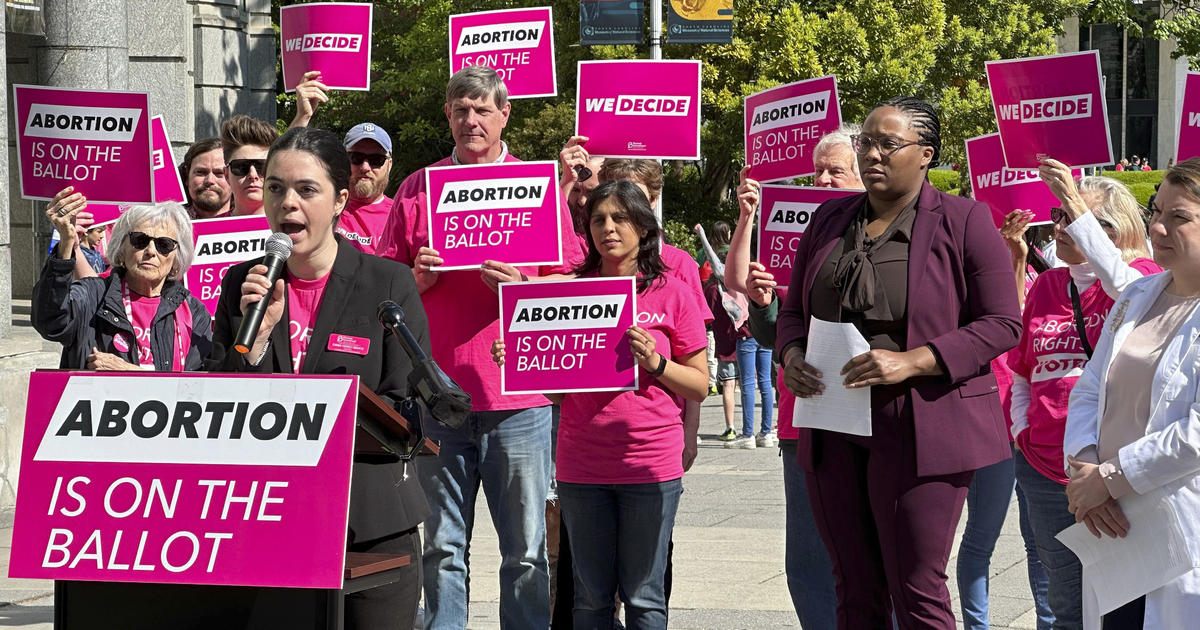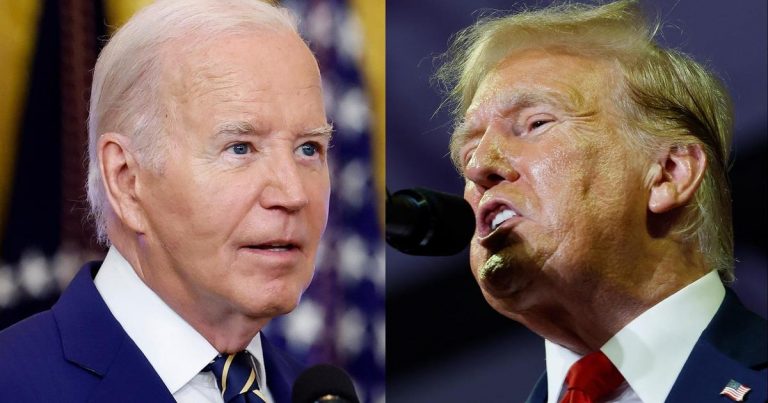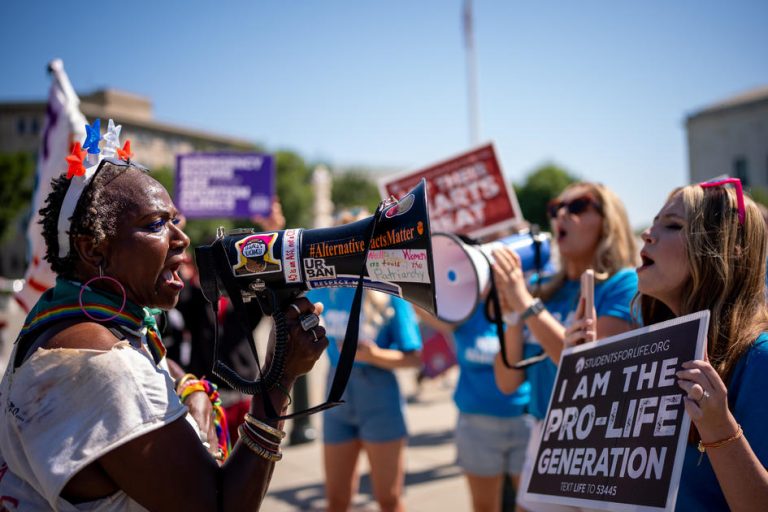Many people support abortion, but worries about inflation and immigration help Trump in Arizona and Florida, CBS News poll shows.
As Arizona and Florida take center stage in the national conversation regarding their abortion battles, many wonder how this issue might impact the upcoming presidential contests in these states. Will it overshadow President Biden’s struggles with inflation and the border crisis, or will it have a different effect altogether?
Currently, the answer seems to be leaning towards the latter. President Biden is trailing by 5 points in Arizona, a state he won in the last election, while Trump holds a comfortable 9-point lead in Florida, a state he has won twice consecutively.
Despite widespread support for abortion rights in both Arizona and Florida, the impact of this issue does not solely benefit Biden or hurt Trump as much as one might expect. Other factors like financial concerns and immigration policies seem to have a more significant impact on shaping the contours of the presidential race in these states.
In Arizona, where the border crisis looms large, a majority of residents believe that President Biden has been too lenient on migrants. Additionally, there is a growing sentiment that recent immigrants from Mexico and Latin America have had a negative impact on life in Arizona over the past four years. This sentiment is echoed by many Hispanic voters in the state as well.
President Trump’s policies are often credited with prioritizing the interests of current U.S. citizens over recent immigrants, a stance that resonates with a significant portion of Arizona residents. On the other hand, many feel that President Biden’s policies do not align with their views on immigration.
This issue appears to be particularly concerning for Mr. Biden among key demographic groups, including Hispanic voters. While Biden won a majority of Arizona’s Hispanic voters in 2020, he now finds himself running neck and neck with Trump among this group. Hispanic voters’ attitudes towards the economy, their financial outlook, and border security closely mirror those of the general electorate.
Furthermore, a substantial number of Hispanic voters now believe that recent immigrants have had a negative impact on life in Arizona, highlighting the complexities of this issue within the state.
When it comes to economic concerns, a significant portion of Arizona voters believe that Trump would be more likely to improve their financial situation than Biden. Even though both candidates are perceived as not fully understanding the economic struggles faced by voters, Trump holds an edge in terms of economic confidence among the electorate.
Meanwhile, the specter of inflation continues to haunt Arizona voters, with many feeling the pinch of rising prices despite national indicators suggesting a cooling inflation rate. These economic anxieties have contributed to Trump’s lead in the state.
Additionally, remnants of election denialism and controversies from the 2020 election still linger in Arizona’s political landscape. A substantial portion of Trump’s current voters express a desire to challenge the election results if he were to lose, underscoring the deep divisions present within the electorate.
Turning to Florida, where the abortion issue has garnered attention, it does not appear to be a deciding factor that would tilt the state towards Biden. Trump maintains a comfortable lead in his home state, with similar dynamics at play as in Arizona.
While support for abortion access is high in both states, it does not translate directly into support for Biden. Many Republicans who support abortion legality in certain cases still choose to vote for Trump. Furthermore, Trump has somewhat distanced himself from the abortion issue, with a significant portion of voters neither blaming nor crediting him for the potential overturn of Roe v. Wade.
The key factor seems to be the level of anger or dissatisfaction among voters regarding the overturn of Roe. Habitual voters, particularly in Arizona, are more likely to express anger about this issue and emphasize its importance in motivating them to turn out in the upcoming election.
While there is majority support for establishing a right to abortion access in both states, ballot initiatives regarding this issue face uncertainties and lack of awareness among voters. Democrats are more likely than Republicans and independents to be informed about these initiatives, although they still struggle with overall enthusiasm for Biden’s candidacy.
In Arizona, two other Democratic candidates, Governor Katie Hobbs and Ruben Gallego, fare better than Biden in potential match-ups. Governor Hobbs receives a slight majority approval rating, while Gallego outperforms Biden, especially among Hispanic voters. On the other hand, in Florida, Republican incumbent Rick Scott enjoys a comfortable lead in his potential re-election bid.
Despite the intricacies of individual issues like abortion, immigration, and the economy, the underlying theme in both Arizona and Florida is the complex interplay of various factors that influence voters’ choices. As the presidential race unfolds, these states are likely to remain crucial battlegrounds with shifting dynamics and evolving voter sentiments.
These insights are based on surveys conducted by CBS News/YouGov between May 10-16, 2024, involving representative samples of adults living in Arizona and Florida. The margins of error for the total samples of adults in Arizona and Florida are +/-3.3 and +/-3.1 points, respectively, while for registered voters, the margins are +/-3.5 and +/-3.9 points.








